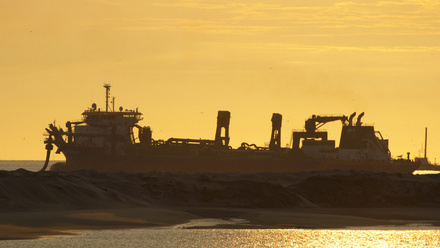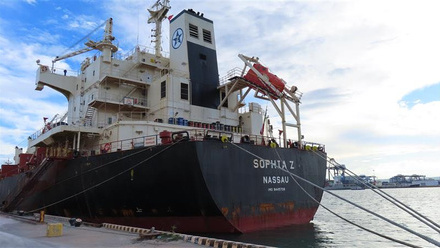An urgent call to improve seafarers’ legal rights
On this year’s IMO Day of the Seafarer Lizi Woodland, from our partner charity the Guild of Benevolence, explains why we are hosting Unrest at Sea, a special event to explore the legal, ethical, and human issues surrounding modern seafaring.
The vast, open seas have long been romanticised, but despite international conventions, numerous seafarers today continue to face threats of piracy, abandonment, and sometimes appalling working conditions.
At the Guild of Benevolence, we’ve supported seafarers and their families through crisis and hardship for generations — but we believe it’s time to ask why that support is so essential in the first place. For me, this ultimately means we need to question how we get the legal support that seafarers, ship managers, and owners need.
Reports from groups like the International Seafarers' Welfare and Assistance Network (ISWAN) and the International Transport Workers’ Federation (ITF) regularly highlight cases where crew are left stranded or abused. And, whilst piracy might not look quite the same as it did in centuries past, it hasn't gone away and is a real and present danger for those working at sea, with the International Maritime Organization reporting 146 incidents in 2024.
It’s no wonder that recruitment rates for UK seafarers are at a record low, according to UK government statistics.
We are fortunate to have a strong network of maritime charities, which provide everything from mental health support to emergency help. In 2023 alone, one major seafaring charity awarded around £2.4 million in grants across 50 maritime charities.
Certainly, many of the hardship grants we award at the Guild of Benevolence are needed because of poor mental health caused by the difficulties faced at sea. For instance, we recently supported a young engineer struggling with PTSD and unable to work after a traumatic piracy incident. Our grant helped fund his mental health treatment and cover essential living costs. But that is not an isolated incident – I could give you many examples.
That level of support exists because, in my opinion, a meaningful system of support at sea simply doesn’t.
Most ship owners are very mindful of the well-being of their people, but they just don’t yet have the level of support they need. The law often ends at the shoreline, and charities are left to pick up the pieces. As one of those charities, we’re proud to be part of the safety net. But the fact we’re needed at all, and in such numbers, is troubling.
If hardship charities really care, then the goal should be to campaign for change and put ourselves out of business. Until then, we’ll keep doing what’s needed – but we urge governments, regulators and the wider industry to join us in pushing for improvements.
And the only real, long-term solution is political and legal. We need proper, enforceable rights for seafarers on board, no matter where they are in the world.
To continue this vital conversation, I warmly invite you to attend Unrest at Sea in London, 13:30, 3 July, for a powerful and urgent conversation uncovering the hidden realities faced by seafarers today. The event will open with first-hand testimonies from crew members who have experienced verbal and physical abuse to highlight the deep mental health impact of life at sea.
This will be followed by a dynamic panel discussion featuring government figures, EU representatives, and maritime leaders. Together with participants, we will explore the legal grey zones at sea, the gaps in current protections, and ask why so many maritime charities are needed to fill the void.
Join us as we bring together experts, advocates and seafarers to discuss what must change – and how we can work together to make it happen.






